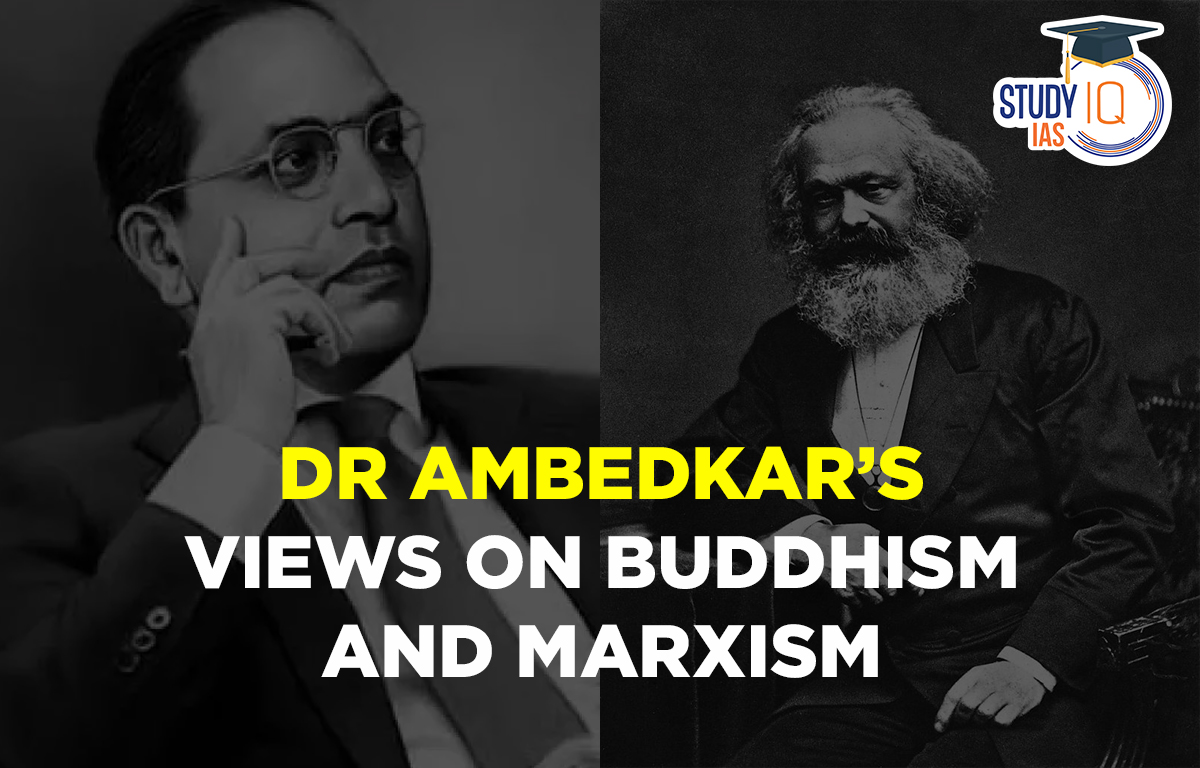Table of Contents
Parinirvan can be translated as ‘nirvana’ after death, or freedom from the cycles of life and death.
As per the Buddhist texts, the death of Lord Buddha is considered to be Mahaparinirvan – the Sanskrit term which means ‘nirvana after death.
Background of Ambedkar’s Views on Buddhism and Marxism
- In 1954, B.R. Ambedkar published an essay title “Buddha or Karl Marx”, in which he compared Buddhism with Marxism.
- Though Karl Marx and Buddha are divided by 2381 years, the essay establishes a comparison and a contrast between their philosophies and their means to achieve their goals.
Similarities Between Buddhism and Marxism:
|
Buddhism |
Marxism |
|
|
Differences between Buddhism and Marxism
|
Means to establish a happy and fair society |
Buddhism:
Marxism:
|
|
Importance of religion |
Buddhism:
Marxism:
|
Dr. B.R. Ambedkar’s Criticism of Marxism
The Communists believe that the state will inevitably However, they do not address what would replace the state.
Communists admit that their conception of the state as a permanent dictatorship is a flaw in their political ideology.
Conclusion
Dr Ambedkar asserted that while both strive for the same end of a just and happy society, the means propounded by Buddha are superior to those of Marx.
Buddha established Communism so far as the Sangh was concerned without dictatorship. It may be that it was a communism on a very small scale but it was communism without dictatorship a miracle which Lenin failed to do.
About Dr. B.R. Ambedkar:
Bhimrao Ramji Ambedkar, popularly known as Babasaheb Ambedkar, was one of the main architects of the Indian Constitution.
Important Contsributions:
- He is known as the Father of the Indian Constitution and was India’s first Law Minister.
- He was the Chairman of the Drafting Committee for the new Constitution.
- He led the Mahad Satyagraha in March 1927 against upper-caste Hindus who were opposing the decision of the Municipal Board.
- He participated in all three Round Table Conferences.
- In 1932, Dr. Ambedkar signed the Poona pact with Mahatma Gandhi, which abandoned the idea of separate electorates for the depressed classes (Communal Award).
- His ideas before the Hilton Young Commission served as the foundation of the Reserve Bank of India (RBI).


 Kailash Mansarovar Yatra to Resume Soon,...
Kailash Mansarovar Yatra to Resume Soon,...
 What is Tensor Processing Unit (TPU)?
What is Tensor Processing Unit (TPU)?
 SSC CGL Syllabus 2025 for Tier 1 and Tie...
SSC CGL Syllabus 2025 for Tier 1 and Tie...





















